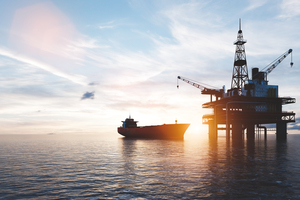Commission suspends sanctioned trustee of World Holocaust Forum Foundation
Press release
The Charity Commission has opened an inquiry into the World Holocaust Forum Foundation, after one of its trustees, Dr Viatcheslav Kantor was sanctioned by the UK government.

The Commission has already taken regulatory action to suspend Dr Kantor as a trustee and to prevent the trustees from parting with any of the charity’s property without the Commission’s prior consent.
The World Holocaust Forum Foundation (1194512), was registered in May 2021 with charitable aims to advance the education of the public in relation to the Holocaust.
On 6 April 2022, the Foreign, Commonwealth and Development Office sanctioned Dr Kantor under the UK’s Russia Sanctions regime, meaning he is now subject to a full asset freeze and his name appears on the ‘UK Sanctions List’ as a designated person.
The Commission’s position is that individuals subject to UK financial sanctions cannot discharge their duties as a trustee of a charity.
The Commission has opened an inquiry on 13 April 2022 to:
- Determine whether the charity can continue to operate and is viable following sanctions being imposed on Dr Kantor;
- Consider the conduct of the trustees and whether they have discharged their legal duties and responsibilities in their management and administration of the charity.
The scope of the inquiry can be added to or amended if additional issues emerge.
ENDS
Notes to Editors
- The Commission has also opened an investigation into the Kantor Foundation (1173549) and Kantor Charitable Foundation (1173550) due to Dr Kantor’s role in them.
- On 6 April 2022, Dr Kantor was named by Her Majesty’s Treasury (‘HMT’) as a ‘designated person’ for the purposes of the Russia (Sanctions) (EU Exit) Regulations 2019.
- The effect of designation with an asset freeze by the UK government, means it is prohibited to deal with the frozen funds or economic resources, belonging to or owned, held or controlled by a designated person. It is also prohibited to make funds or economic resources available, directly or indirectly, to, or for the benefit of, a designated person. Matters relating to sanctions should be directed at the Office of Financial Sanctions Implementation.
- It is the Commission’s policy, after it has concluded an inquiry, to publish a report detailing what issues the inquiry looked at, what actions were undertaken as part of the inquiry and what the outcomes were. Reports of previous inquiries are available on GOV.UK.
- The Charity Commission is the independent, non-ministerial government department that registers and regulates charities in England and Wales. Its purpose is to ensure charity can thrive and inspire trust so that people can improve lives and strengthen society.
Published 22 April 2022
